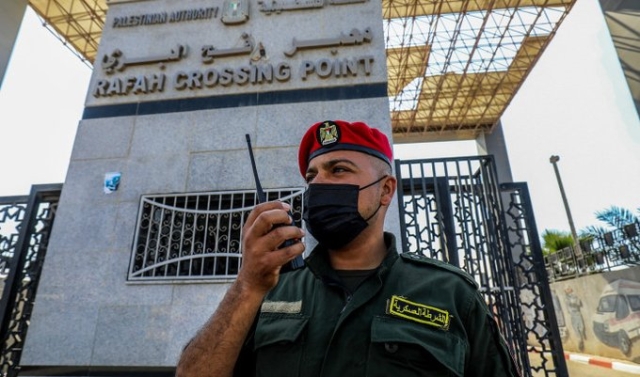In recent diplomatic maneuvers, Israel has been applying pressure on Egyptian President Abdel Fattah Al-Sisi to consider providing refuge for Palestinians from the Gaza Strip. To sweeten the deal, Israel has put forth a novel proposal: the World Bank would absolve Egypt of its significant financial debt in return for Egypt's willingness to accept these refugees.
This diplomatic push from Israel is part of a broader effort that includes soliciting the support of international leaders. Israel is seeking their assistance in convincing President Al-Sisi to open his nation's borders to Palestinians fleeing the strife in Gaza. However, Al-Sisi has expressed his reservations about this proposal and has suggested an alternative approach - that Israel should absorb these refugees in the Negev region.
World Bank offer to forgive part Egyptian debts.#Israel exerts pressure on Egypt to permit #Palestinian refugees into Sinai. A senior #Egyptian official allegedly expresses #Cairo's willingness to engage in dialogue with Palestinian factions to prevent the forced relocation of… pic.twitter.com/wr8CM2wu84
— Loay (@AstroLoay) October 31, 2023
Israeli Prime Minister Benjamin Netanyahu has been actively engaging with global leaders to garner their support for convincing Egypt. His stance, which is backed by the Israeli security cabinet, posits that this is the most viable solution from a security perspective.
Another option currently under consideration is the transport of wounded or displaced Gazans by sea, followed by the establishment of a field hospital in Egypt. These measures could alleviate some of the humanitarian challenges stemming from the ongoing conflict.
On Egypt's part, there is a legitimate concern about a potential influx of refugees attempting to cross the Rafah border and enter Egyptian territory. U.S. National Security Advisor Jake Sullivan highlighted an additional complication: Hamas, the governing authority in Gaza, is reportedly obstructing the departure of approximately 600 American citizens who find themselves in the Gaza Strip. Sullivan stated that Hamas is making various demands that are hindering the departure of these American citizens.
President Al-Sisi made a significant declaration two weeks ago, asserting that the Egyptian people would vehemently oppose the reception of Palestinian refugees from Gaza into the Sinai Peninsula. He warned that such an action could transform Sinai into a launchpad for attacks against Israel, effectively making Egypt a base for terrorist operations. During a joint press conference in Cairo alongside German Chancellor Olaf Schulz, Al-Sisi argued that the Gaza Strip is effectively under Israeli control and suggested that Palestinians be relocated to the Negev region until the situation with Hamas extremists is resolved.
.@SecBlinken says Hamas is preventing Americans in Gaza from leaving through the Rafah border crossing into Egypt.
— Face The Nation (@FaceTheNation) October 22, 2023
"To date, at least, Hamas has blocked them from leaving, showing once again, its total disregard for civilians of any kind who are stuck in Gaza," Blinken says. pic.twitter.com/kShZMbiQV0
Currently, approximately 2.4 million Palestinians reside in the Gaza Strip. As the conflict escalated, many of them sought refuge near the Rafah border crossing, which remained closed. Egypt has voiced its opposition to allowing them into its territory to prevent a potential refugee crisis. President Al-Sisi emphasized Egypt's stance, stating, "What is transpiring in Gaza appears to be an attempt to coerce citizens into seeking shelter and migrating to Egypt, and we will not condone such a course of action."
He added, "Egypt stands firmly against any attempts to address the Palestinian issue through military means or the forced displacement of Palestinians from their homeland, particularly if it comes at the expense of regional stability." Al-Sisi warned that if the situation escalated, millions of Egyptian citizens would take to the streets to protest the influx of Gazans into Sinai.


